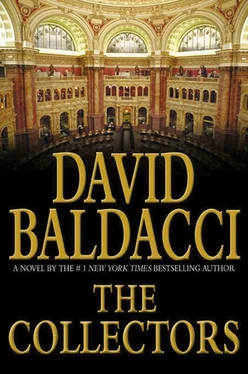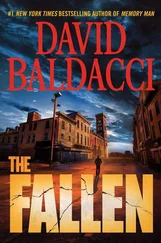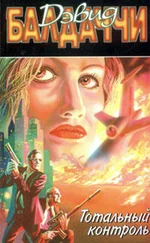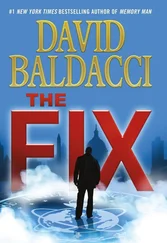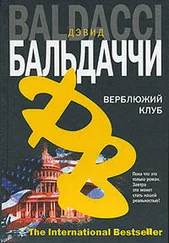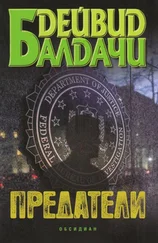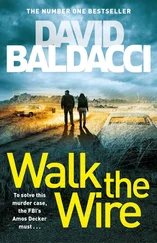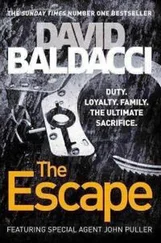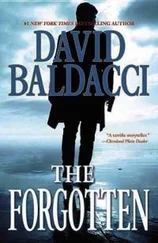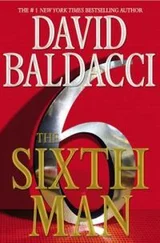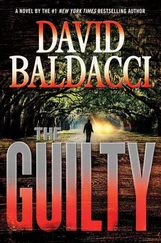Back home in his workshop, Seagraves finessed the secrets from the pages of the “program” and put them in the proper format to send along to Albert Trent the next time he saw the man. He smiled. What he was staring at was no less than the final pieces he needed for the decryption keys for high-level diplomatic communications emanating from the State Department to its overseas branches. Now he was thinking $10 million was too cheap. Maybe $20 million. Then Seagraves decided he would start at $25 million to leave himself some wiggle room. He conducted all his negotiations over various prearranged Internet chat sites. And the secrets were only delivered once the money had been wired into his numbered account. He had taken the very reasonable position of not trusting anyone he did business with. Yet he was kept honest on his end by the efficiencies of the free market. The first time he collected money without delivering the merchandise, he would be out of business. And probably dead.
The only possible thing that could upset that plan was some old guys who had a habit of snooping. If it had only been the librarian, he wouldn’t have been too worried. But thrown into the mix was the Triple Six, a man not to be taken lightly. Seagraves could sense another storm brewing. For that reason, when he’d earlier kidnapped Stone and tortured him, he’d taken one of his shirts from the man’s cottage; to add to his collection, if the need arose.
Stone and Milton arrived at the Federalist Club around ten the next morning.
They gave their request and were escorted into the manager’s office. He looked at their crisp, official-looking identification cards that Milton had run off his laser printer the night before.
“You’ve been hired by Bradley’s family back in Kansas to investigate his death? But the police here are handling it. And the FBI. They’ve all been here, numerous times,” the manager added in an annoyed tone.
“The family wanted its own representation, as I’m sure you can understand,” Stone said. He and Milton were dressed in suit jackets, ties and dark slacks. Milton’s longish hair was hidden under a fedora that he’d declined to remove. “They don’t feel as if adequate progress is being made.”
“Well, since the police haven’t caught anyone, I can’t argue with that opinion.”
Stone said, “You can call them if you want to verify our representation of their interests. Mrs. Bradley is out of the country, but you can talk to the family’s local lawyer in Maryland.” On the card was Milton’s phone number. He’d recorded a message posing as the attorney in the off chance the manager took them up on the offer.
“No, that’s all right. What would you like to know?”
“Why was Bradley at the club that night?”
“It was a private celebration, for his election as Speaker of the House.”
“I see. Who arranged it?”
“His staff, I believe.”
“Anyone in particular?”
“Not that I can remember. We received instructions by fax. I assumed it was a surprise of some sort.”
“And he was killed in the front drawing room?”
“We call it the James Madison Room. You know the Federalist Papers thing. I can show you if you like.”
He led them to the large room fronting the street. Stone looked out the broad bay window at the upper story of the building across the street. To his skilled eye it was a perfect shot trajectory, which clearly demonstrated not only advance intelligence but someone on the inside.
Following through on this thought, Stone asked, “And he came in here why?”
The manager was wiping a speck of dust off the marble fireplace mantel. “Oh, it was for the toast, in his honor.” He shivered. “It was ghastly. Senator Pierce had just finished speaking when Bradley was shot. It was absolutely horrifying, blood everywhere. A very expensive Persian rug was a total loss, and blood even seeped into the wood. That cost a small fortune to have bleached out and then restained. The police just let us do it recently. We couldn’t even cover it because they said it might taint the evidence. People had to walk by looking at it. Cut down on membership traffic here, I can tell you that.”
“Who owns the building across the street?” Milton asked.
“I don’t know. I assume the authorities have found out by now. It used to be a private home and then an art gallery. It’s been just sitting there for about five years now, a real eyesore, but what can you do? I had heard, though, that it was being renovated. Into condos, I think. They just hadn’t started the work yet.”
“So who summoned Bradley into the room for the toast?” Stone asked.
The manager thought for a moment. “There were so many people here, I’m not sure. I really wasn’t involved in that part of the celebration. I was standing by the window when the shot came. I think I actually felt it whiz by my ear. I was limp for days after.”
“I’m sure. Anyone else that might be able to tell us anything?”
“Well, one of the waiters, and the bartender who worked the event. They’re both in now if you want to talk to them.”
The bartender knew nothing. However, the waiter, Tom, said, “It was one of his staff, I think, who got everybody together for the toast. At least that’s what I recall. I helped pull people in from the other rooms, and then they went and got Congressman Bradley.”
“Do you remember who it was? The staff person?”
“No, not really. There were a lot of people. And I don’t think he ever said his name.”
“So it was a man?” Tom nodded. Stone held up a copy of pictures of Bradley’s staff. “Recognize anyone? How about him?” He pointed to Dennis Warren. “He was Bradley’s chief of staff. It would make sense for him to organize the toast.”
“No, it wasn’t him.”
“Him,” Stone said, pointing to Albert Trent. “He was also high up on Bradley’s staff.”
“Nope.” The waiter ran his gaze down the photos, finally stopping at one. “That’s him. Now I remember. Really efficient.”
Stone stared at the photo of Michael Avery, who’d served on Bradley’s staff at the intelligence committee.
As they were leaving the Federalist Club, Milton asked, “What now?”
“Now we talk to some people who worked for Bradley.”
“Not Avery? That would tip him off.”
“No, but Trent or Warren.”
“But we can’t tell them we’re investigating on behalf of Bradley’s family; they’d probably know we were lying.”
“No, we’re going to tell them the truth.”
“What?”
“We’re going to tell them we’re investigating the death of Jonathan DeHaven.”
Dennis Warren was at home when Stone called, after looking him up in the directory, and he agreed to meet with them. Over the phone he’d said that while he’d heard about DeHaven’s death, he didn’t know the man. He’d commented ruefully that “I don’t even have a library card, I’m ashamed to admit.”
Milton and Stone rode the Metro to Warren’s Falls Church, Virginia, home. It was a modest place in an older neighborhood. It was clear that Warren was not the outdoor or handyman type. His lawn was full of weeds, and the house was desperately in need of painting.
However, inside, the place was cozy and comfortable, and, despite Warren’s comment on not having a library card, the shelves were full of books. Stacks of worn tennis shoes, varsity jackets and teen-related junk showed that he was also a father.
Warren was a tall, portly man with thinning brown hair and a wide pockmarked face. His filmy, translucent skin bespoke of decades laboring for his country under fluorescent light. He led them through the hall to the living room.
Читать дальше
